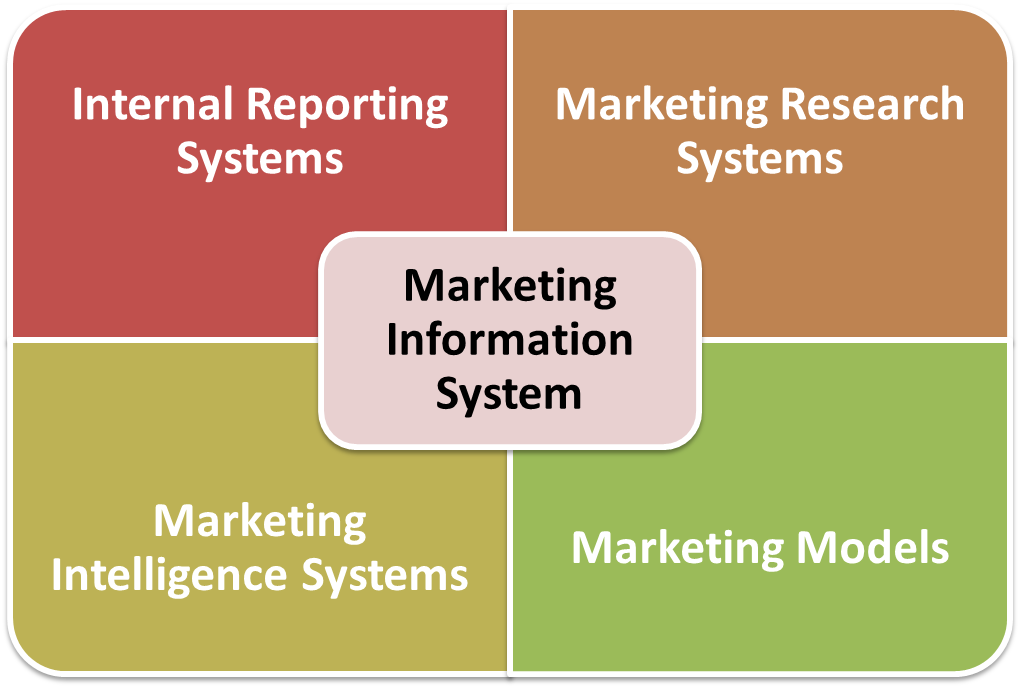A Marketing Information System (MIS) comprises of people, equipment and procedures for accumulating, sorting, analyzing, evaluating and disbursing the required, timely and connect information to the decision makers.
Characteristics/Features of Marketing Information System (MIS)
MIS possesses the following characteristics or features,
- It provides the most relevant information to the decision makers.
- It is clear and easy to understand.
- It is confidential, providing data to the most authentic parties.
- It is explicit, accurate and specific.
- It is cost effective and requires less time for its implementation.
- It provides needed information on time.
- It is objective and carries strategic value.
- It acts as a source for generating précised and reliable data.
Components of Marketing Information System (MIS)

The major components of an MIS include,
(i) Internal Reporting Systems
A company has voluminous amount of internal reports on sales, orders received, prices, costs, inventory levels, sales invoices etc. These reports provide essential and most important information to the marketing managers which helps them in analyzing the opportunities and flu-eats. Gathering information from these reports is beneficial in taking marketing decisions like a company can identify and analyze whether it is having sufficient stock to meet up the current demand for its product.
Sales forecasts facilitates the firm to determine the total sales of a company which is an aggregate of the sales generated by an individual store. Based on these results, firms can place orders with the suppliers for the delivery of raw materials and component parts.
(ii) Marketing Research Systems
A proactive search for information constitutes the marketing research. It facilitates in solving the marketing problems by conducting the in depth market study. Marketing research mainly deals with the collection, analysis and interpretation of the data in a systematic manner for solving specific marketing problems. It concentrates mainly on providing effective solutions to certain marketing problems faced by the organization or to make decisions regarding certain policies or strategies.
(iii) Marketing Intelligence Systems
With the help of a marketing intelligence system, a marketer has a capability of obtaining everyday information related to the growth and development of markets as it provides a set of procedures and varied sources of information. On the basis of provided information, several marketing decisions can be made. Marketing managers gather marketing awareness from trade journals, newspapers, and publications and also through the interaction with customers, suppliers and distributors. Even the meetings and discussions with other company managers also serve the purpose of obtaining marketing intelligence. Marketing intelligence can also be collected by detailed observation and scanning of the environment.
(iv) Marketing Models
Marketing models serve as a means to interpret information which helps the company to make decisions. Such models could be computerized or manual. Few of these marketing models are listed below,
- Time series sales models
- Brand switching models
- Linear programming
- Elasticity models (price, income, demand, supply)
- Regression and correlation models
- Analysis of Variance (ANOVA)
- Discounted cash flow and
- Sensitivity analysis models.
